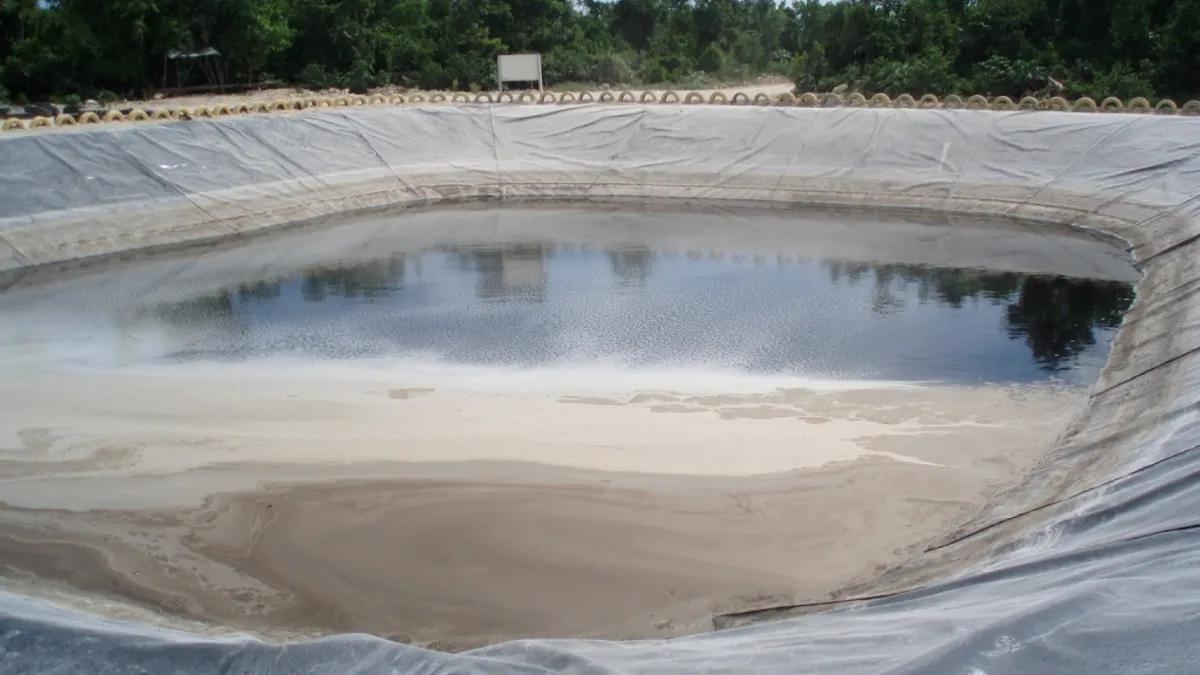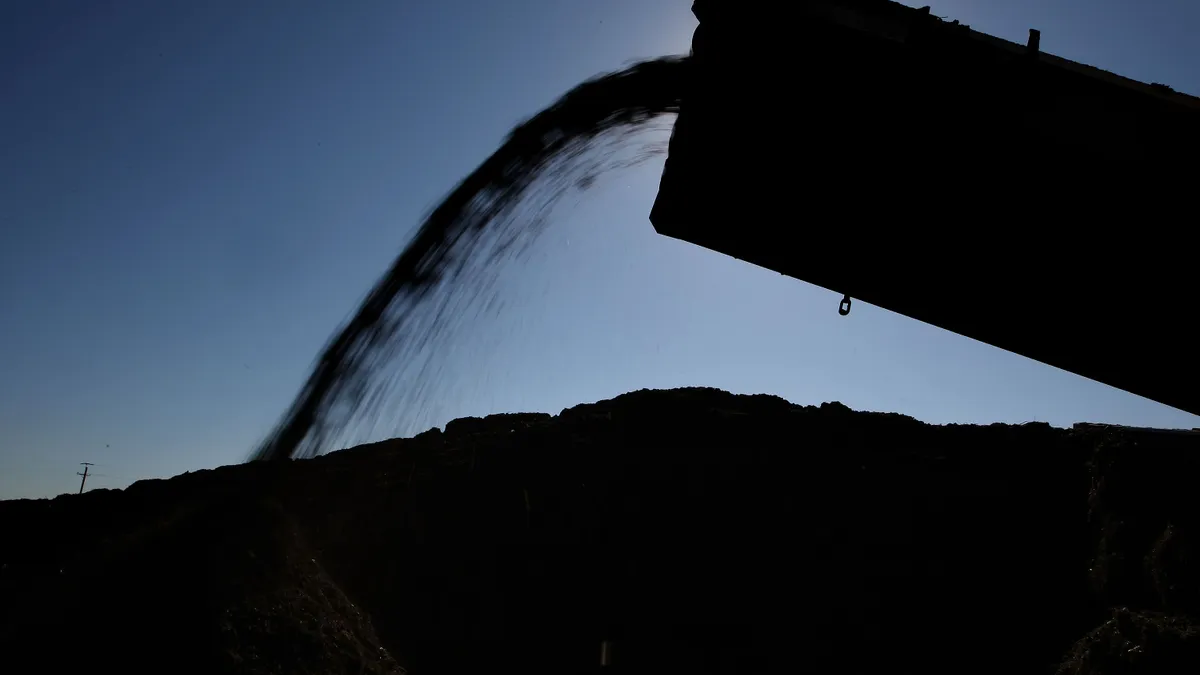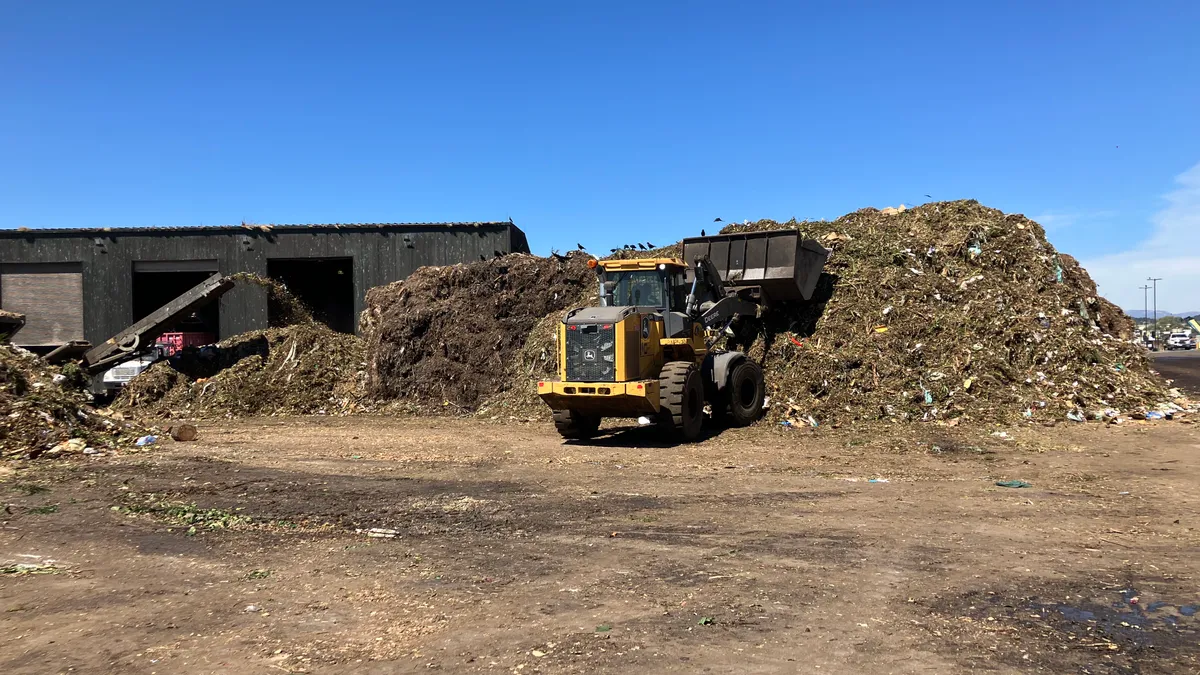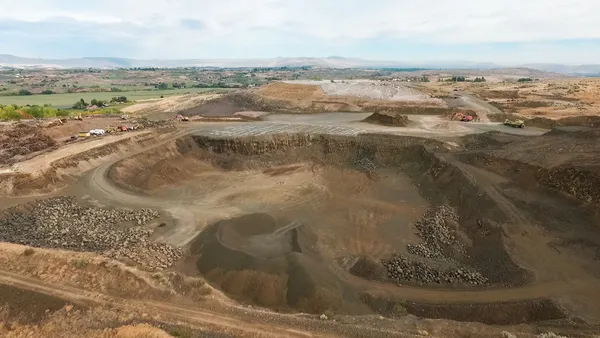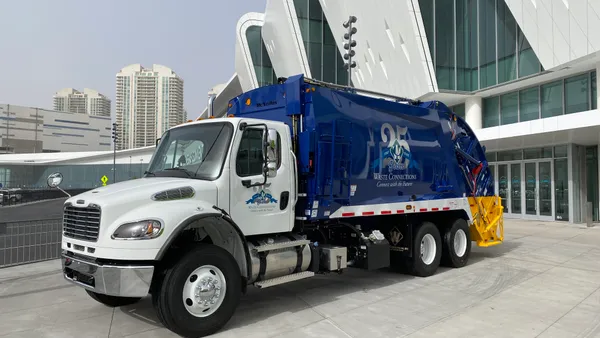Dive Brief:
- Leachate management is one of the most costly operational expenses to landfill operators, eating through about 30% of budgets due to tight controls to safely manage it, according to Brown and Caldwell Vice President Kevin Torrens, as reported in Waste360. Research now shows that even after leachate is treated it can contain multiple chemicals, which broaches the safety and public health issue.
- Waste360 reported the keys to leachate management success are a well-designed treatment process and a system to prevent ground and water contamination. Most commonly, biological treatments are applied that reduce organic and nitrogen concentrations, though they are often combined with other advanced processes for optimal quality.
- To keep management costs down, Torrens suggests keeping to minimum capital investment, and anticipating even more regulations being implemented on future leachate management operations.
Dive Insight:
Leachate management typically involves discharging to local publicly-owned treatment works (POTW) that handle domestic sewage, though a more costly alternative may be required where leachate is pretreated before being trucked to POTW or sent to receiving waters, with the latter destination calling for more advanced technology. Other potential challenges to system design are variances in volumes and quality of this waste and protecting communities’ resources and residents.
"Application of established landfill design practices and proper operation, maintenance, and monitoring are the keys to not impacting surface or groundwater quality or adjacent soils. Double composite liner systems are essentially the norm for a state-of-the-art landfill facility, and we have extensive data that show these systems work and do not release contaminants to groundwater," said William Soukup of Cornerstone Environmental Group to Waste360.
As landfill operators look for the safest, most efficient systems, they also have a budget in mind, But staying competitive means keeping up with cutting-edge technology. The companies staying on top of leachate management are anticipating and preparing for forced operational changes to be able to finance projects—also anticipating capitalizing on this critical waste management role.


